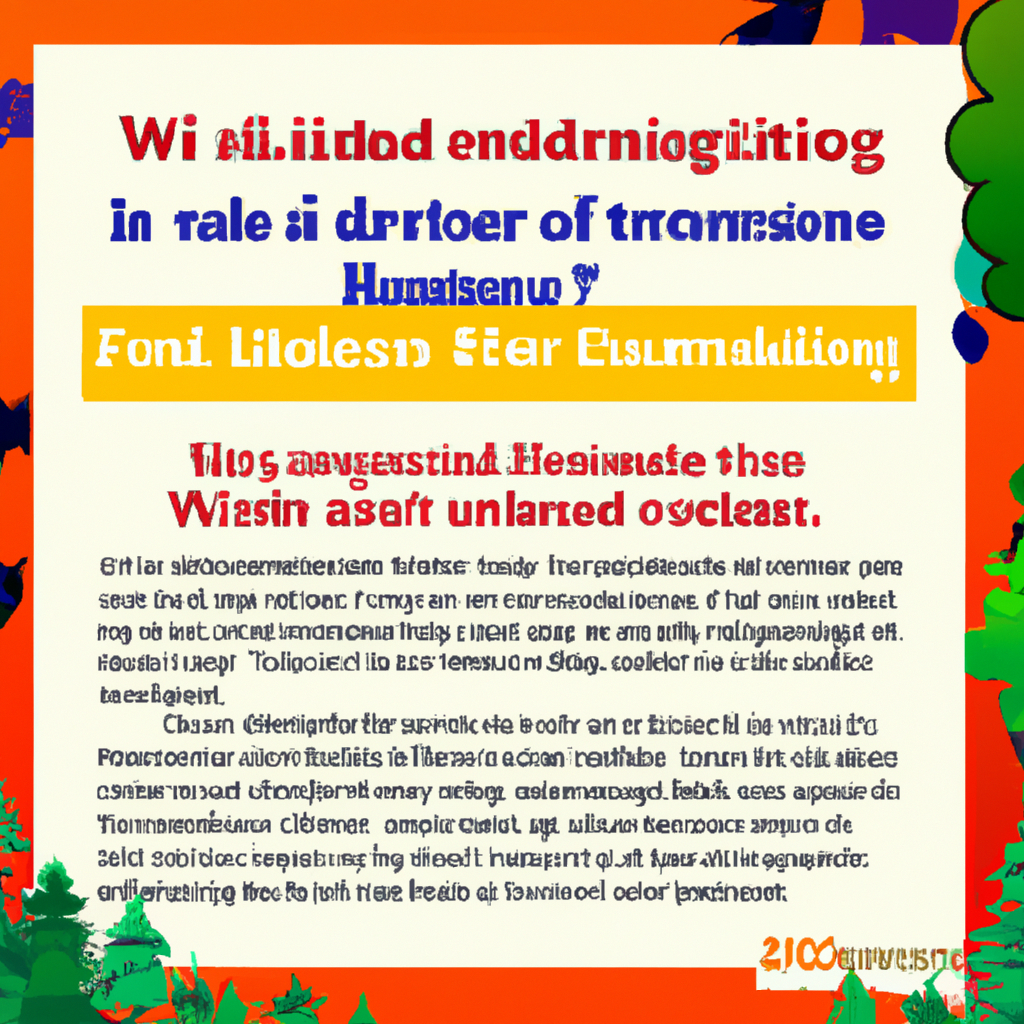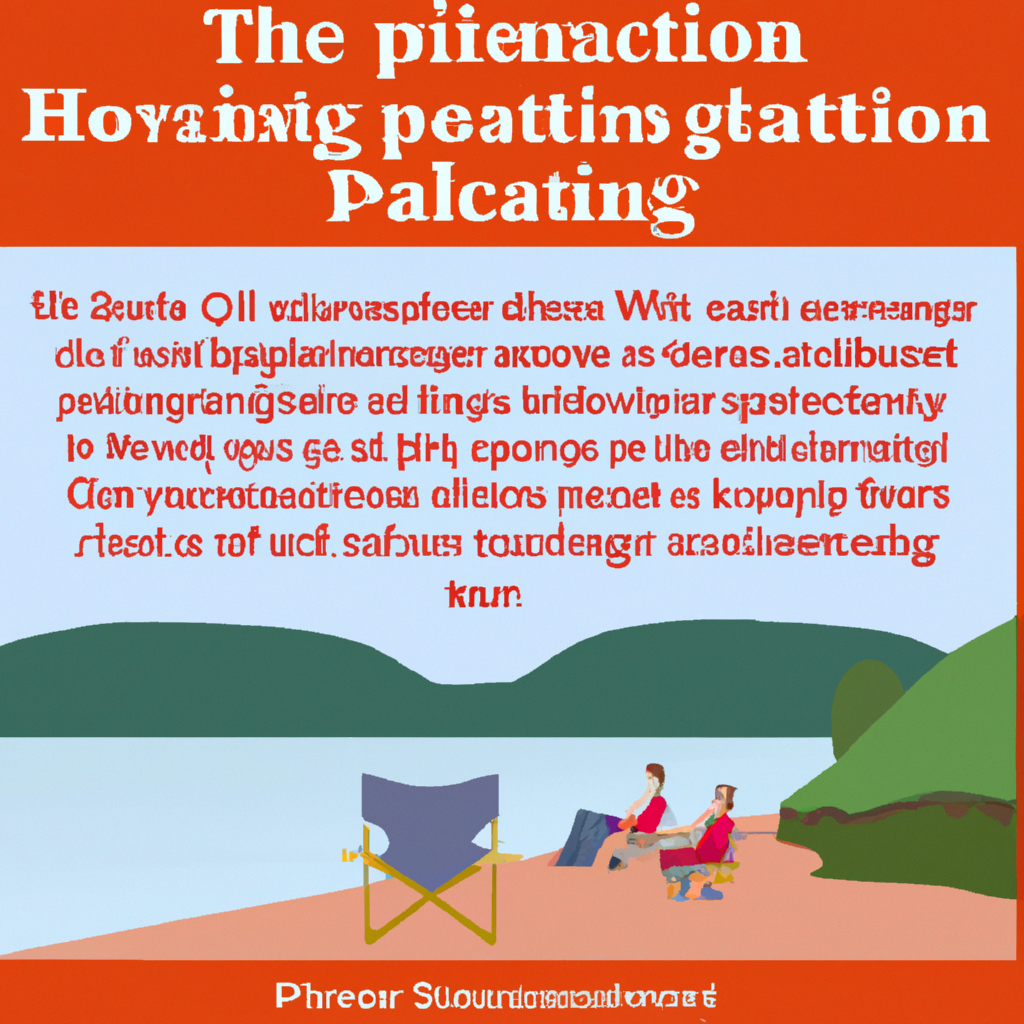Planning a camping trip near a picturesque water body can be an idyllic experience, but before you pitch your tent and toast marshmallows, it’s important to be aware of any specific regulations that may apply. Whether you’re heading to a serene lake, a babbling river, or a tranquil beach, understanding the rules and guidelines for camping near water bodies is crucial to make the most of your outdoor adventure. From fishing restrictions to environmental considerations, this article will explore the various regulations you should keep in mind to ensure a safe and enjoyable camping experience.
Regulations for Camping Near Water Bodies
When it comes to camping near water bodies, there are several important regulations that you should be aware of to ensure the safety of yourself and the environment. These regulations are in place to protect the natural resources, wildlife, and overall experience for everyone involved. In this comprehensive article, we will explore the various regulations and guidelines that you should adhere to when camping near water bodies.

Environmental Impact
Camping near water bodies can have a significant impact on the environment if not done responsibly. It is crucial to be mindful of the following practices to minimize your environmental footprint:
- Avoid camping too close to the water’s edge to prevent erosion and disturbance to aquatic habitats.
- Do not use soaps, detergents, or other chemicals in or near the water, as they can be harmful to aquatic life.
- Dispose of waste, including food scraps, properly to prevent pollution of the water and attract unwanted wildlife.
Water Access and Safety
While camping near water bodies provides a unique opportunity to enjoy various recreational activities, it is important to prioritize water access and safety. Follow these guidelines to ensure a safe and enjoyable experience:
- Familiarize yourself with local water regulations, including swimming restrictions, boating speed limits, and fishing seasons.
- Wear appropriate safety gear, such as life jackets, when engaging in water activities.
- Be cautious of strong currents, underwater hazards, and changing water levels.
Campsite Selection
Choosing the right campsite is crucial to minimize your impact on the surrounding environment and ensure your safety. Consider the following factors when selecting a campsite near water bodies:
- Camp at designated sites whenever possible to avoid damaging sensitive ecosystems.
- Choose a site that is a safe distance away from the water’s edge, taking into account factors such as tides, flooding, and wildlife activity.
- Look for level ground and stable terrain to ensure a comfortable camping experience.

Waste Disposal
Proper waste disposal is paramount when camping near water bodies to protect these fragile ecosystems. Here are some essential waste disposal guidelines to follow:
- Pack out all trash and waste, including food scraps and packaging, to keep the area clean and prevent wildlife from becoming habituated to human food.
- Use designated restroom facilities whenever available.
- If no facilities are available, bury human waste at least 200 feet away from the water’s edge and any trails, using a trowel or shovel.
Wildlife Interaction
Camping near water bodies often means encountering a diverse range of wildlife. To ensure the safety of both yourself and the animals, it is important to follow these guidelines:
- Do not feed wildlife, as it can disrupt their natural behavior and lead to aggressive behavior.
- Store all food, trash, and scented items in bear-resistant containers or hang them from trees at least 10 feet off the ground and 4 feet away from the trunk.
- Observe wildlife from a safe distance and avoid approaching or disturbing them.
Fire Safety
Campfires can be a delightful part of camping, but they must be managed responsibly. Follow these fire safety guidelines to prevent forest fires and protect the environment:
- Check with local authorities for any fire bans or restrictions in the area you plan to camp.
- Only build campfires in designated fire rings or pits, and never leave them unattended.
- Fully extinguish the fire before leaving the campsite, ensuring all embers are cold to the touch.
Fishing and Boating
If you plan to fish or engage in boating activities while camping near water bodies, it is essential to adhere to specific regulations and guidelines:
- Obtain the necessary permits and licenses before fishing, following local regulations regarding species restrictions, catch limits, and fishing seasons.
- Practice catch and release whenever possible to conserve fish populations.
- Follow boating regulations, including registering your boat, wearing appropriate safety gear, and respecting no-wake zones.
Permits and Fees
Many areas require permits or have fees associated with camping near water bodies. It is important to research and obtain the required permits to ensure you are in compliance with local regulations. Some common types of permits include:
- Camping permits: Some areas may require permits for overnight camping. These permits often help manage campground capacity and ensure a positive camping experience for all visitors.
- Fishing permits: Depending on the jurisdiction, fishing permits or licenses may be required. These permits help fund conservation efforts and maintain healthy fish populations.
- Boating permits: If you plan to use a boat, particularly motorized, you may need a permit to ensure compliance with waterway regulations and safety standards.
Specific Water Body Restrictions
Different water bodies may have specific restrictions or regulations in place. These can include restrictions on watercraft, swimming, or designated no-camping zones. It is crucial to research and understand the specific regulations for the water body you plan to camp near to avoid any violations and ensure a positive experience for all.
Leave No Trace Principles
Lastly, following the Leave No Trace principles is essential when camping near water bodies. These principles serve as a guide for minimizing your impact on the environment and maintaining the natural beauty of the area. The seven Leave No Trace principles are:
- Plan ahead and prepare.
- Travel and camp on durable surfaces.
- Dispose of waste properly.
- Leave what you find.
- Minimize campfire impacts.
- Respect wildlife.
- Be considerate of other visitors.
By following these principles, you can enjoy camping near water bodies while leaving the area just as pristine as you found it.
In conclusion, camping near water bodies offers incredible opportunities for outdoor enthusiasts. However, it is crucial to abide by the regulations and guidelines set forth to protect the environment, ensure safety, and maintain a positive experience for all. By adhering to the regulations discussed in this article, you can enjoy a memorable camping trip while preserving the beauty and integrity of the water bodies you visit.

